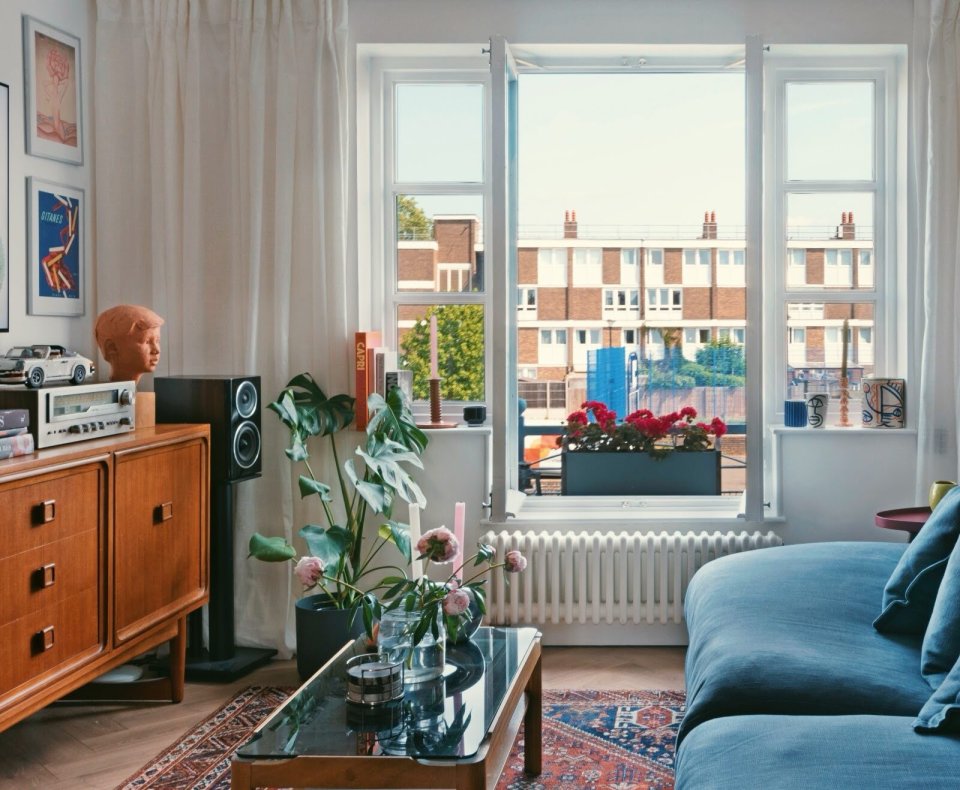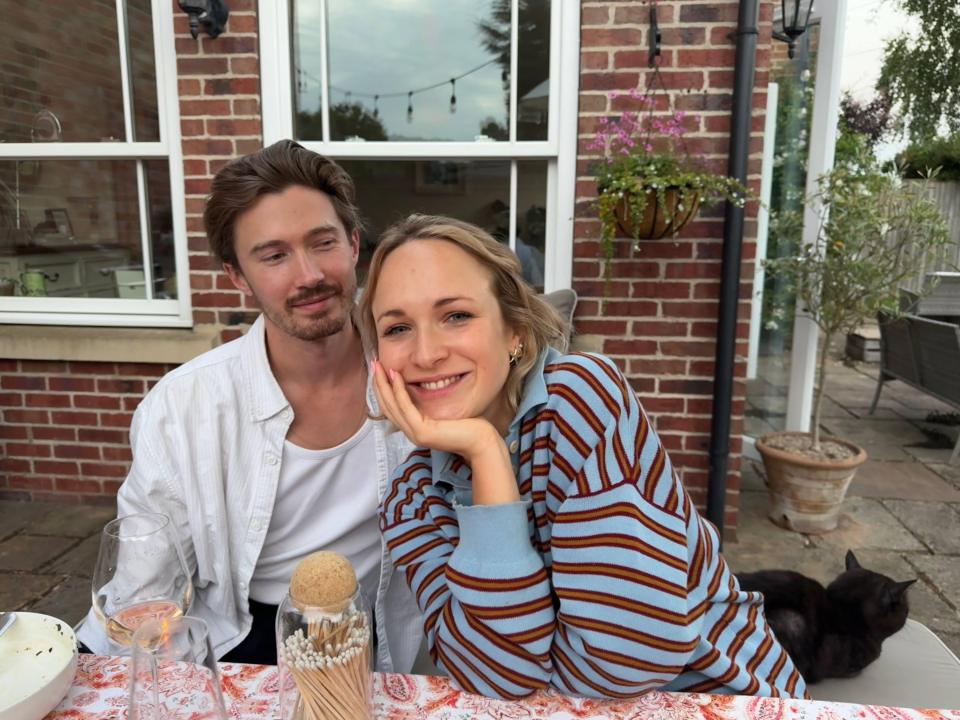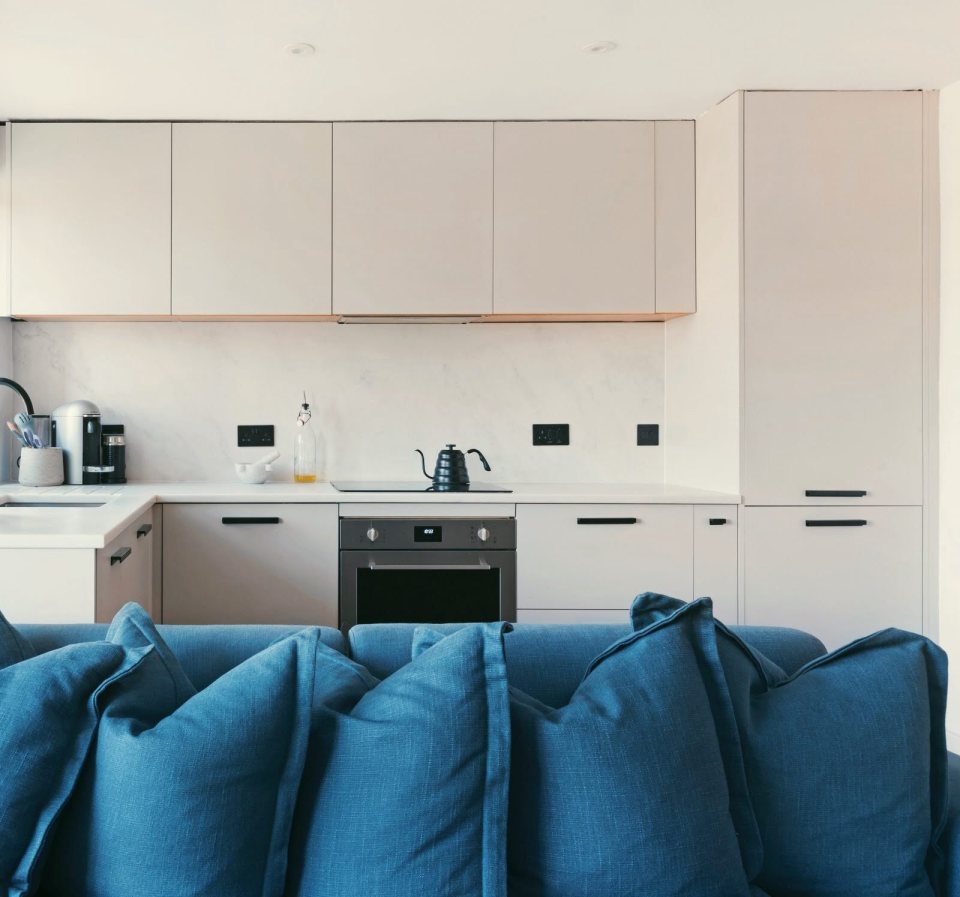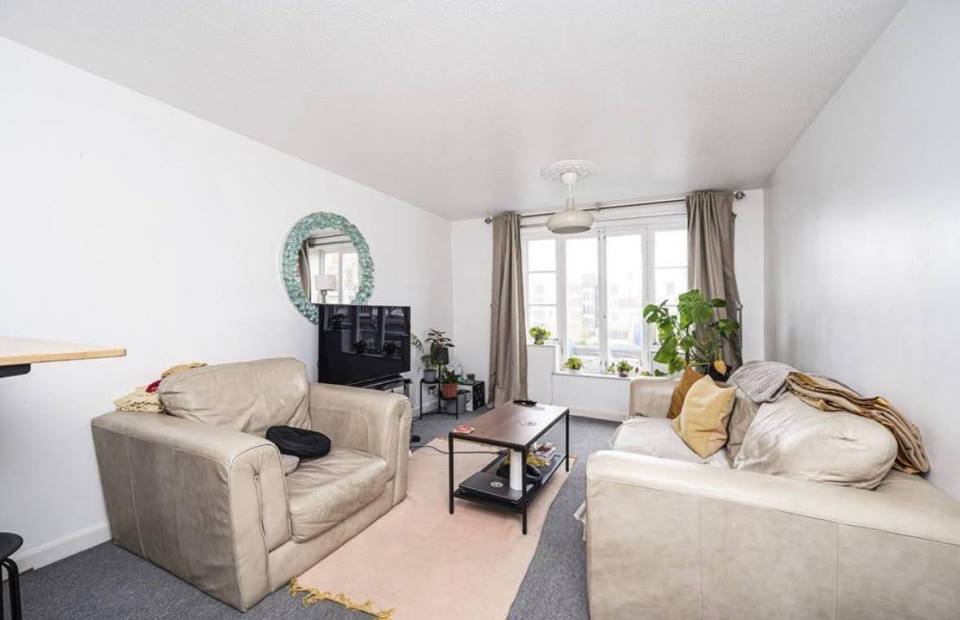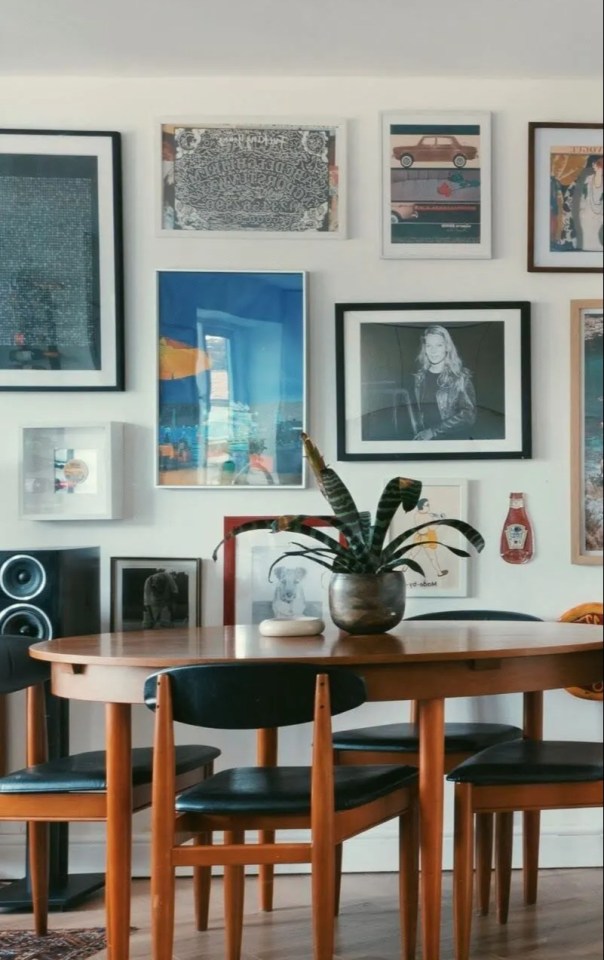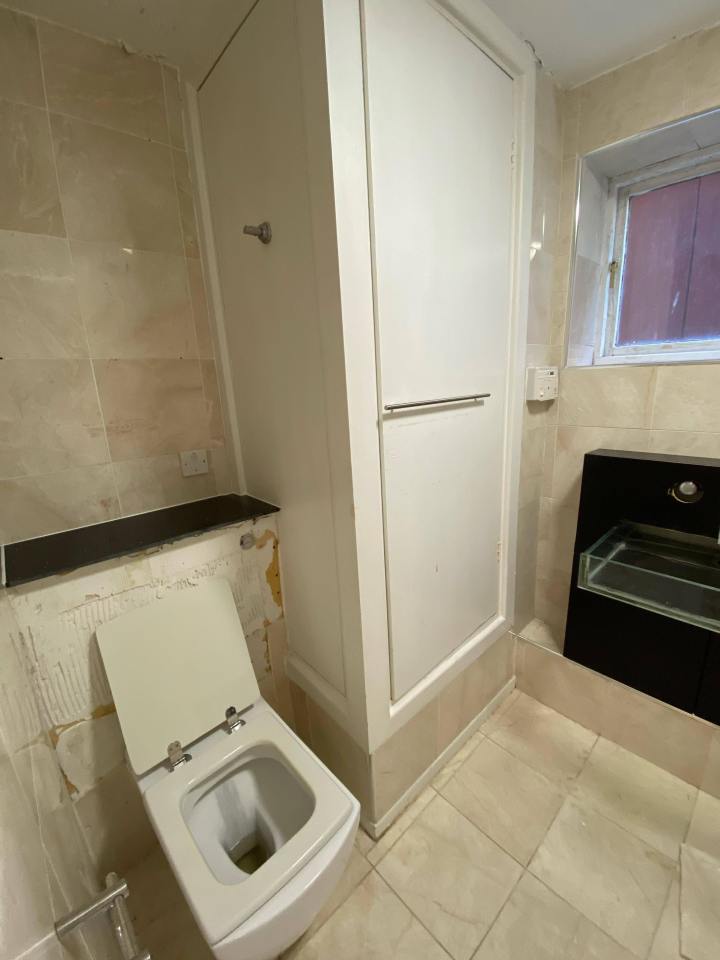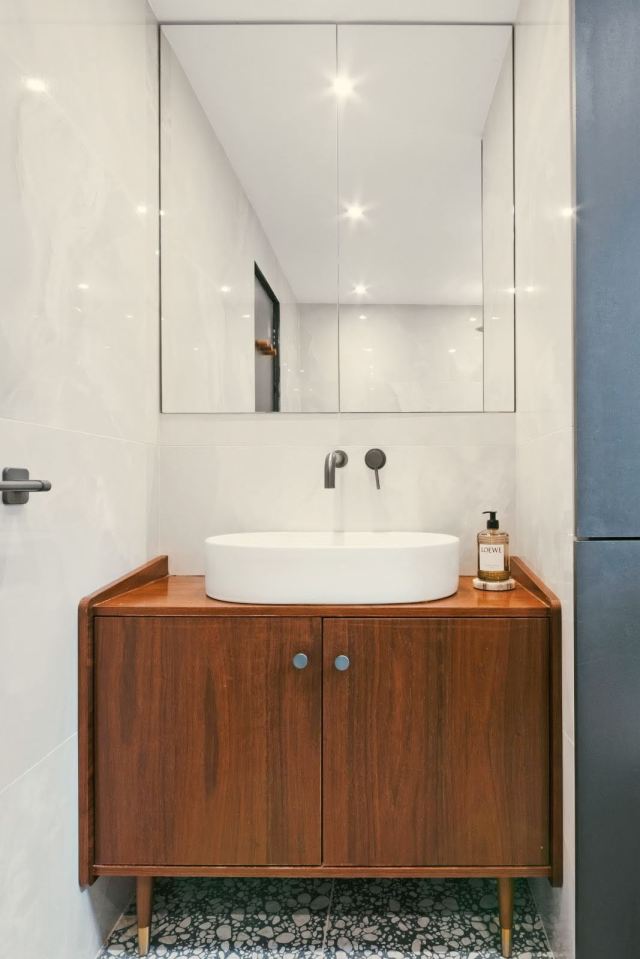RENTERS Sebastian Thomas and Ella Genders’ hearts sank as the rental renewal letter dropped into their inbox.
Their landlord wanted to increase the rent for their one-bedroom flat in Dalston, London, by £300 to £2,300 a month – and they were unhappy with the increase.
With no savings, Sebastian, who work as a property developer, and Ella, a senior fundraiser at a charity, both 31, didn’t think they would be able to get on the property ladder either.
Little did they know a chance conversation with Ella’s mum, Claude, over dinner one night would set them on the path to homeownership.
During the conversation Ella’s mum mentioned she had heard an advert for Skipton’s Track Record mortgage on the radio.
The mortgage works by offering borrowers 100% of the cost of a property, so they don’t need to put down a deposit.
It uses their rental history to work out how much they may be able to borrow.
The deal has a higher interest rate than a typical five-year mortgage as it is riskier for Skipton to lend to borrowers without a deposit.
The interest rate on the mortgage is fixed for five years, which means it will not change during this time.
The couple spoke to a mortgage advisor and applied for a decision in principle in just five days.
Within a week of their initial conversation they had put in an offer on a one-bedroom flat overlooking Regent’s Canal in North London.
Their offer of £385,000 was accepted in October 2023 after a short bidding war.
“It felt too good to be true,” said Sebastian.
“We felt incredibly lucky as it’s so difficult to get on the housing ladder at the moment. It’s been rewarding to do it without the bank of mum and dad.”
The mortgage payment on their new home was £2,000 a month – the same amount they had been spending on rent.
The deal had an interest rate of 5.5%, which was one percentage point above the average rate at the time.
Different types of mortgages
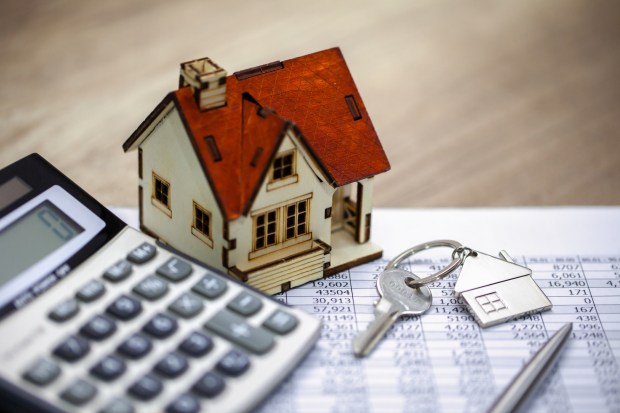
We break down all you need to know about mortgages and what categories they fall into.
A fixed rate mortgage provides an interest rate that remains the same for an agreed period such as two, five or even 10 years.
Your monthly repayments would remain the same for the whole deal period.
There are a few different types of variable mortgages and, as the name suggests, the rates can change.
A tracker mortgage sets your rate a certain percentage above or below an external benchmark.
This is usually the Bank of England base rate or a bank may have its figure.
If the base rate rises, so will your mortgage but if it drops then your monthly repayments will be reduced.
A standard variable rate (SVR) is a default rate offered by banks. You usually revert to this at the end of a fixed deal term, unless you get a new one.
SVRs are generally higher than other types of mortgage, so if you’re on one then you’re likely to be paying more than you need to.
Variable rate mortgages often don’t have exit fees while a fixed rate could do.
But although the mortgage was more expensive than others on offer, interest rates rose in the months after the couple locked into their deal due to turbulence in the property market.
This meant that within three months most first-time borrowers were borrowing money at this interest rate anyway.
After moving in, the young couple spent the next six months renovating the property, which had previously been rented out to tenants for a decade.
Sebastian said: “The kitchen was old and the bathroom was in a very bad state.
“The carpet was old and it was clear nothing had been done to the property for 20 years.”
Sebastian and Ella re-did the bathroom, floors and wardrobes.
They also opened up the kitchen and living room into one space.
Sebastian said: “We were quoted £15,000 to do the bathroom alone so decided to do it ourselves to save money.”
In total Sebastian and Ella spent around £20,000 on the whole renovation project.
They saved up money from their salaries over several months to fund the building work.
One of the risks with a 100% mortgage is falling into negative equity, which is when the value of your home falls below the amount you owe on your mortgage.
In this situation, if you need to sell your home then you might struggle to repay the full loan.
But luckily for Sebastian and Ella they have been able to add value to their flat, which has stopped them from falling into this trap.
Ella said: “We weren’t worried about negative equity as we always knew we would add value to our home.”
The couple are now in the process of moving to a bigger flat after finding out that they are expecting their first child this year.
They sold their home for £475,000, which gave them a profit of £90,000.
Sebastian and Ella have now put in an offer of £500,000 on a two bedroom property in Clapton.
They plan to put down a £25,000 deposit and use the money they made from the property sale to add value to their flat.
They have budgeted £50,000 for the refurbishments, which will include a modern kitchen, new floors and a fresh bathroom.
As they are only two years into their Track Record Mortgage they will transfer it to their new flat through a process called “porting”.
This means they can keep their existing rate and terms and avoid costly fees to get a new deal.
Ella said: “We wouldn’t be on the property ladder right now without the mortgage.
“We can now afford a bigger flat in another area and have a second room. It feels like such a weight off our shoulders.
“You can’t really plan these things, like a baby. We could have still been renting but it’s really nice to know we will make our next flat our family home for our baby girl.”
Sebastian agreed and said: “A lot of people questioned whether we’d be able to buy the flat with a 100% mortgage, make money on it and then move up the ladder.
“It’s been super rewarding to be able to prove it has worked.”
Why is a 100% mortgage controversial?
No deposit mortgages have made a comeback in recent months as they can be a lifeline for first-time buyers – but many experts have also warned against them.
In 2008, during the financial crisis, they were axed and stricter lending rules were brought in.
The crisis began in the US when lenders lent 100% and 125% mortgages to people with poor credit who were at a higher risk of defaulting.
They were able to do this due to lax lending rules; this fuelled a housing bubble as property prices soared.
But then, interest rates started to rise in the UK and house prices started to fall. Their homes were now worth less than what they paid for them and many couldn’t afford the repayments due to soaring interest rates – it led to a high default rate, with some losing their homes.
The loans were repackaged and sold to financial firms as investments – but when the bubble burst it led to trillions of dollars of worthless mortgages.
This then caused the collapse of several banks, impacted the UK economy and ultimately a worldwide recession. So, you can see why some people are worried about them.
They were axed during the 2008 crisis and stricter lending rules were brought in, after sub-prime mortgages and in the US were the reason
Is a 100% mortgage right for you?
If you buy a home without a deposit then you are at a bigger risk of negative equity.
This is when your mortgage is more than the total value of your home, which can happen if house prices fall.
If interest rates rise then it can make it harder to remortgage or sell your home.
They also have higher interest rates, making them more expensive.
If you take one out, then you might need to factor in paying back extra so that you start to chip away at the loan and increase the chance of getting equity.
You also will be taking a gamble on house prices increasing.
How does a track record mortgage work?
A Track Record mortgage can help you buy your first home if you are already renting.
It uses your rental history to check that you can keep up with monthly mortgage payments.
The mortgage lasts for five years, which means your interest rate will not change during this period.
To be eligible for the deal you need to meet the following criteria:
- Be over the age of 21
- Haven’t owned a property in the UK in the last three years
- Not have missed a debt payment
- Want to borrow up to £600,000
You will need to give 12 months of bank statements to prove that you’ve kept up with your rent payments.
Or you can submit a letter from the letting agent which shows you have made 12 monthly rent payments.
There are no fees to apply for the mortgage but other fees may apply once you have taken it out.
These depend on your circumstances and can include re-inspection fees, change of term fees and if a direct debit is not paid.
To find out how much you could borrow visit skipton.co.uk/mortgages/getting-a-decision-in-principle.
Which other providers offer 100% mortgages?
April Mortgages also offers a 100% mortgage, which allows people to buy a house without a deposit.
To be eligible home buyers need to have a household income of at least £24,000 and be looking to buy or remortgage a house that is valued at more than £75,000.
The deal is only available on a ten or 15-year fixed-term, so buyers would need to be happy to lock in for this length of time.
But there are no early repayment charges if you want to move home or if you repay the mortgage in full.
You can borrow up to 4.49 times your income and can make unlimited overpayments at any time, which can help you to pay off your mortgage faster.
What help is available for first-time buyers?
GETTING on the property ladder can feel like a daunting task but there are schemes out there to help first-time buyers have their own home.
Lifetime Isa – This is another Government scheme that gives anyone aged 18 to 39 the chance to save tax-free and get a bonus of up to £32,000 towards their first home. You can save up to £4,000 a year and the Government will add 25% on top.
Shared ownership – Co-owning with a housing association means you can buy a part of the property and pay rent on the remaining amount. You can buy anything from 25% to 75% of the property but you’re restricted to specific ones.
Mortgage guarantee scheme – The scheme opens to new 95% mortgages from April 19 2021. Applicants can buy their first home with a 5% deposit, it’s eligible for homes up to £600,000.
Do you have a money problem that needs sorting? Get in touch by emailing money-sm@news.co.uk.
Plus, you can join our Sun Money Chats and Tips Facebook group to share your tips and stories



